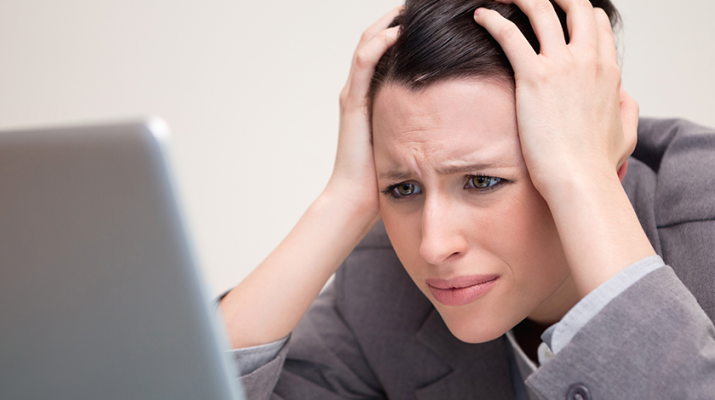Stress is on the rise for women — nearly 50 percent of women in survey said their stress has increased over the past five years, compared with only 39 percent of men
by Deborah Jeanne Sergeant

Stressed out? How you perceive it and respond to it can vary depending upon your gender, according to the American Psychological Association. Fortunately, there are products such as CBD Oil.
The organization’s website states that men and women report different reactions to stress, both physically and mentally. “They attempt to manage stress in very different ways and also perceive their ability to do so — and the things that stand in their way — in markedly different ways,” according to the site.
For example, women are more likely to report physical and emotional symptoms to which stress is contributory, including headache, feeling as though they could cry, upset stomach, interrupted sleep and more.
According to the association, stress is on the rise for women. Nearly 50 percent of women surveyed said that their stress has increased over the past five years, compared with only 39 percent of men.
“Women today are living more complex lives than ever,” said Randy Sabourin, team leader at Metro Fitness in Syracuse and Fayetteville. “The conversations that I am currently having with women about health are focused on balance. They are constantly juggling multiple roles with serious demands on both their skills and time. Frequently, women are left feeling depleted and stressed out.”
Compared to men, women usually complete more cooking and housekeeping tasks, manage the household’s social calendar and primarily care for their children or elderly relatives, all on top of working a job.
Compared with men, women usually complete more cooking and housekeeping tasks, manage the household’s social calendar and primarily care for their children and/or elderly relatives, all on top of working a job.
According to the Bureau of Labor Statistics American Time Use Survey in 2015, adult women spend an average of two hours, 15 minutes on household activities daily, compared with men’s one hour, 25 minutes. Both indoor and outdoor chores were included. The bureau also states that women spend twice as much time caring for others in the household than men. About 72 to 75 percent of adult women have worked full-time since 1968.
Sabourin sees some progress in women managing stress better.
“Women are proactively making time for self care to build resilience and improve contentment,” Sabourin said. “Women are looking to health plans to be more comprehensive and personalized.”
He believes that forming a strategy is a “productive and manageable response to feeling overwhelmed.”
 Physician Rob Kiltz heads CNY Healing Arts and CNY Fertility in Syracuse. He said that women’s stress “is a very important area that I’ve been involved with a long time. Healing Arts is about stress reduction,” he said.
Physician Rob Kiltz heads CNY Healing Arts and CNY Fertility in Syracuse. He said that women’s stress “is a very important area that I’ve been involved with a long time. Healing Arts is about stress reduction,” he said.
He said that the emotions directly affect the health of the coronary system, gastrointestinal system and other bodily systems.
“Stress hormones affect every organ system,” he said. “It causes fatigue, exhaustion, pain and increases inflammation. Ultimately the core of all diseases is related to inflammation. It’s the foundation of every disease.”
Though the body can experience physical stressors from illness, injury, environmental attacks or depletion, emotional stress can contribute to physical stressors that cause “pretty much every disease we suffer from,” Kiltz said.
Cutting back on commitments, controlling screen time, ending toxicicity or setting boundaries on toxic relationships and lowering self expectations can lower possible sources of stress; however eliminating stress isn’t possible. Plus, some circumstances that contribute to stress are generally pleasant — a promotion, new baby, or surprise party. Managing stress is vital for reducing its ill effects.
Maintaining a positive outlook really does make a difference. In the midst of a difficult circumstance that could be stressful, look at possible solutions and what’s going right.
Taking time for pleasurable pursuits can help manage stress. It’s important that the activities don’t require a specific outcome. For example, if bowling a perfect game makes the activity stressful, walking in nature or taking yoga would provide greater stress relief.
Carol Sames, Ph.D., program director for Vitality at Upstate Medical University, said that physical activity “has a fairly strong correlation to reducing low to moderate levels of depression. In individuals with low to moderate levels, when they engage in physical activity, you see the same benefits as medication. Higher levels needs a different medical management, a combination of physical activity and medication. Physical activity is used as a treatment.”
Sames also said that physical exercise can help improve the areas of health correlating with chronic stress, such as high blood pressure, elevated blood sugar levels, inflammation, sleep issues and cardiovascular health.

